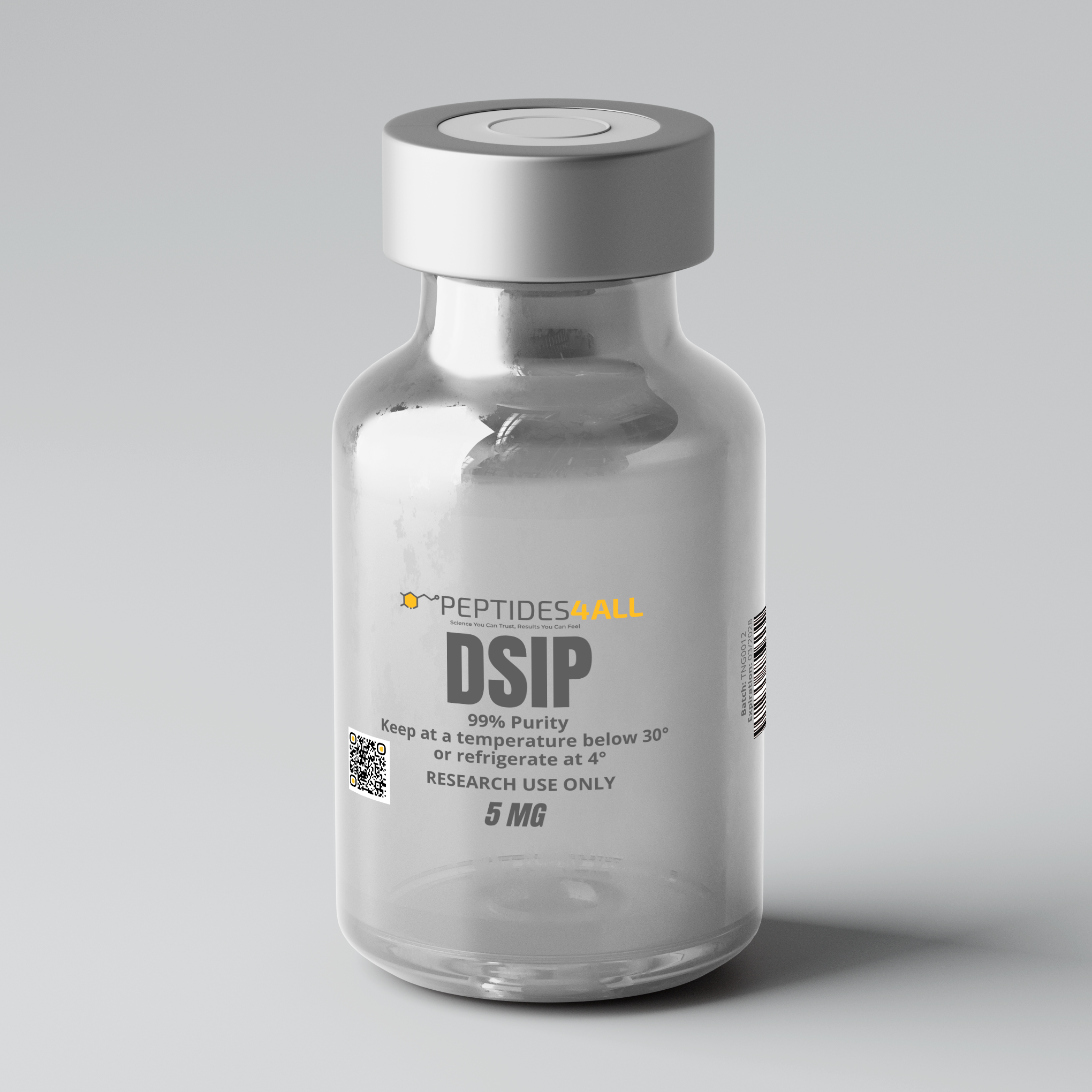Sequence: Trp-Ala-Gly-Gly-Asp-Ala-Ser-Gly-Glu
Format: Endogenous Neuromodulator Peptide
Chemical Description
DSIP (Delta Sleep-Inducing Peptide) is a nonapeptide widely distributed in the mammalian central nervous system. Unlike many neuropeptides, it exists in a free form and acts as a broad-spectrum neuromodulator rather than a direct ligand for a single receptor type. Biochemically, DSIP is studied for its influence on the serotonergic and dopaminergic systems, as well as its capacity to modulate the activity of NMDA glutamate receptors, thereby influencing neuronal excitability and circadian signaling pathways in vitro.
Research Applications
This compound is strictly for laboratory research use in the study of:
- HPA Axis Regulation: Investigation of the peptide's ability to inhibit the secretion of Adrenocorticotropic Hormone (ACTH) and Luteinizing Hormone (LH) in pituitary cell cultures.
- Circadian Rhythm Markers: Research into the biochemical pathways governing delta-wave generation and circadian oscillators in suprachiasmatic nucleus models.
- Neuroprotection Assays: In vitro analysis of antioxidant capacity and the reduction of NMDA-mediated excitotoxicity in neuronal cells subjected to oxidative stress.
Technical Specifications
- Molecular Formula: C35H48N10O15
- Molecular Weight: 848.81 g/mol
- Purity: >99% (determined by HPLC)
- Appearance: Lyophilized White Powder
Presentation & Handling
- Form: Supplied as lyophilized peptide in sterile vial.
- Reconstitution: Use bacteriostatic water or 2% procaine; swirl gently (do not shake vigorously).
- Storage: Store at –20 °C, protected from light and moisture. After reconstitution, use according to research protocols and handle under sterile conditions.
Disclaimer: For Research Purposes Only
This content is provided strictly for laboratory research purposes and does not constitute an endorsement or recommendation for any non-laboratory application. The information provided regarding specific peptides is for educational and informational purposes only and must not be construed as medical, clinical, or legal guidance, nor as an encouragement for use in humans or animals.
Peptides described here are solely for use in structured scientific study by qualified researchers. We advise consulting with laboratory safety officers or research experts prior to handling these materials. The expectation of responsible, ethical utilization of this information for legitimate investigative and scholarly objectives is paramount. This notice governs all content on this site.
